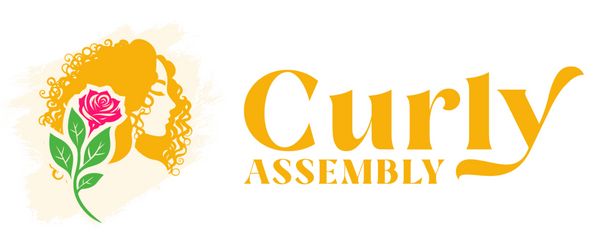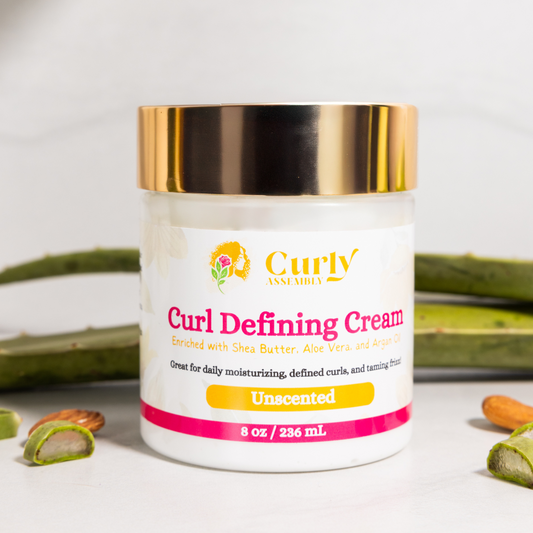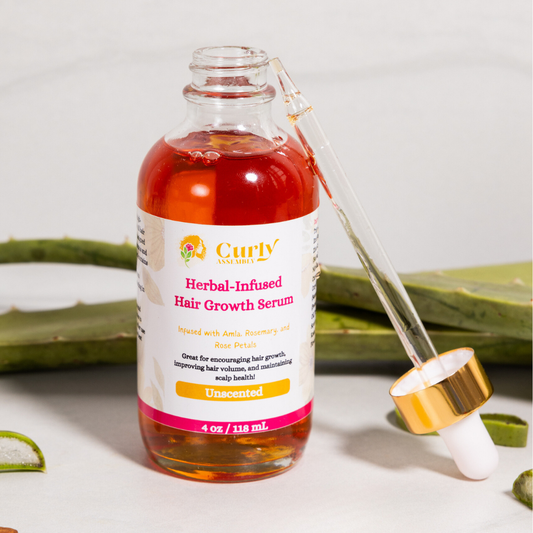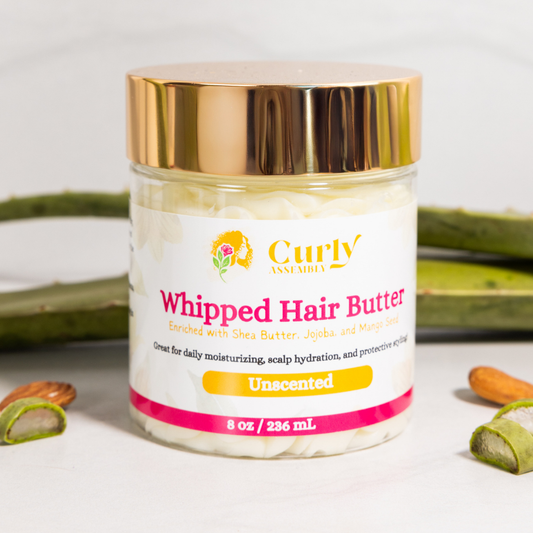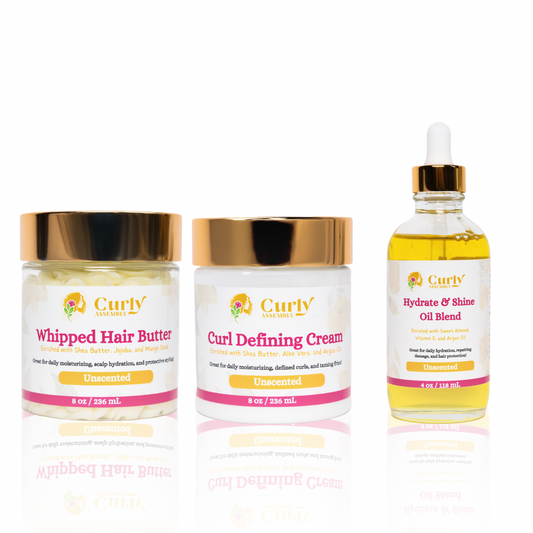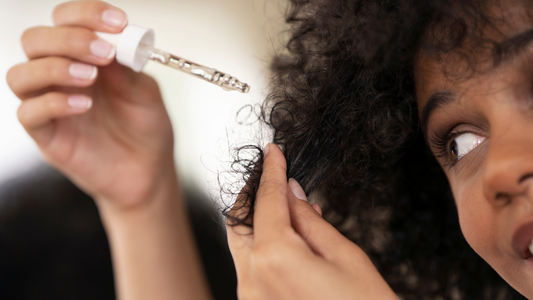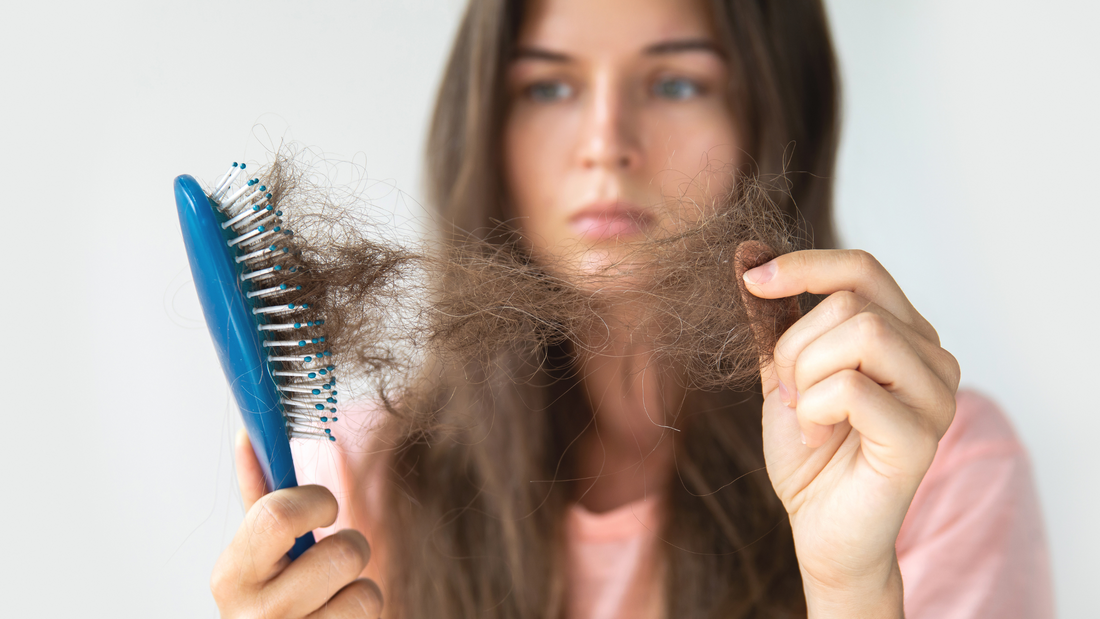
Hair Breakage & Shedding? These Nutrients Could Be the Solution
Hair loss can be influenced by several factors, including genetics, hormonal changes, and medical conditions. However, one often-overlooked aspect is nutrition. Deficiencies in key vitamins and minerals, sudden changes in diet, or even excessive intake of certain nutrients can all disrupt hair growth and contribute to thinning hair.
If you're experiencing hair loss, examining your nutritional intake could be a crucial step toward restoring healthy hair growth.
Key Nutrients That Impact Hair Growth
Vitamin D
Vitamin D is essential for calcium absorption, immune function, and even hair follicle health. Research suggests that a deficiency in vitamin D may be linked to conditions like alopecia areata, an autoimmune disorder that causes hair loss. Low vitamin D levels are also associated with weakened hair structure. Spending time in the sun, consuming vitamin D-rich foods, or taking supplements (as recommended by a healthcare provider) may help improve hair health.
Iron
Iron is a vital nutrient for red blood cell production and oxygen transportation. Low iron levels, particularly in individuals who menstruate, can lead to telogen effluvium, a condition characterized by excessive hair shedding. Iron-rich foods like spinach, red meat, and legumes, along with proper vitamin C intake for absorption, may help combat hair loss caused by iron deficiency.
Zinc
Zinc supports hair follicle function, and a deficiency can lead to thinning hair and breakage. Some studies suggest that people with hair loss conditions, such as alopecia, often have lower zinc levels. However, excessive zinc intake can also disrupt hair growth. It’s best to obtain zinc from natural sources like nuts, seeds, and whole grains while avoiding over-supplementation.
B Vitamins
While biotin (B7) is commonly linked to hair health, deficiencies in other B vitamins—such as riboflavin (B2), B12, and folate—can also contribute to hair thinning. Though biotin supplements are widely marketed, true biotin deficiencies are rare. Instead, ensuring a well-balanced diet that includes whole grains, lean proteins, and leafy greens can help maintain healthy hair.
Vitamin C
Vitamin C plays a crucial role in collagen production and iron absorption. A lack of vitamin C can lead to weak, brittle hair and conditions like scurvy, which affects hair structure. Including citrus fruits, bell peppers, and berries in your diet can help maintain strong, healthy hair.
Can Too Many Vitamins Harm Your Hair?
While deficiencies can cause hair loss, excessive intake of certain vitamins and minerals can also have negative effects:
- Vitamin A: Excess vitamin A from supplements or retinoid treatments can lead to hair shedding.
- Vitamin E: While some research suggests it may support hair health, excessive vitamin E intake can lead to thinning hair.
- Selenium: Although present in many hair growth products, high levels of selenium have been linked to hair loss and other health issues.
Before taking supplements, consult with a healthcare provider to determine if you actually need them.
How to Improve Your Nutrition
If you're concerned about hair loss, consider these steps:
- Get Tested: Blood tests can identify deficiencies in iron, vitamin D, and other key nutrients. Consult a healthcare professional for proper evaluation.
- Adopt a Nutrient-Rich Diet: A well-balanced diet, rich in whole foods, proteins, and healthy fats, can support optimal hair health.
- Limit Processed Foods and Excessive Supplementation: Overuse of supplements or diets high in processed foods can lead to imbalances that negatively affect hair growth.
- Manage Stress and Lifestyle Factors: Stress, lack of sleep, and overuse of heated hair tools can also contribute to hair loss. Prioritize self-care and gentle hair-handling techniques.
While hair loss can be distressing, addressing nutritional gaps and maintaining a healthy lifestyle can make a significant difference. Rather than relying solely on hair products or supplements, a well-rounded approach that includes a balanced diet, medical guidance, and proper hair care can help restore and maintain strong, healthy hair.
If you're experiencing persistent hair loss, consider seeking advice from a healthcare provider or dermatologist to identify the root cause and develop an effective treatment plan.
